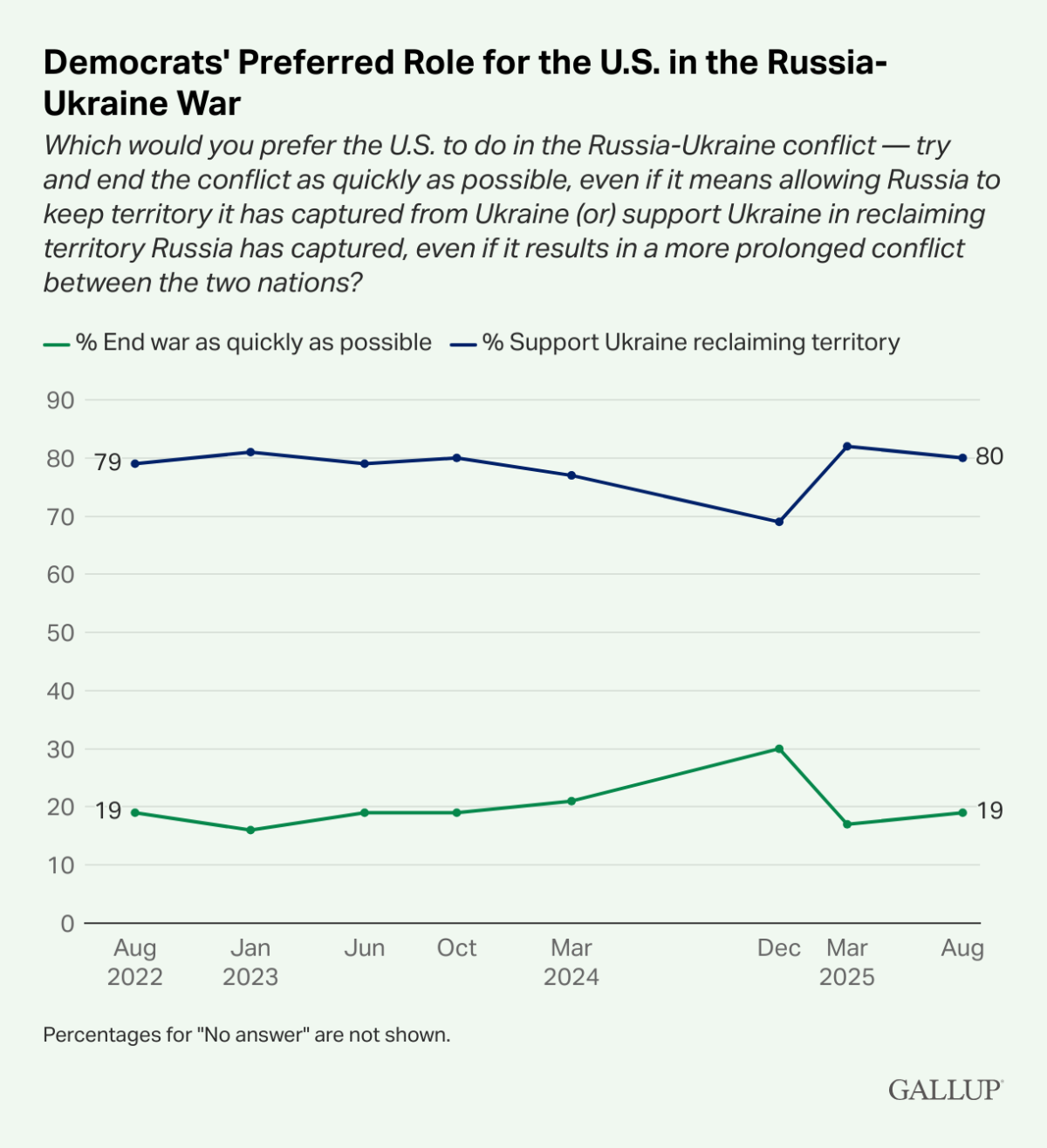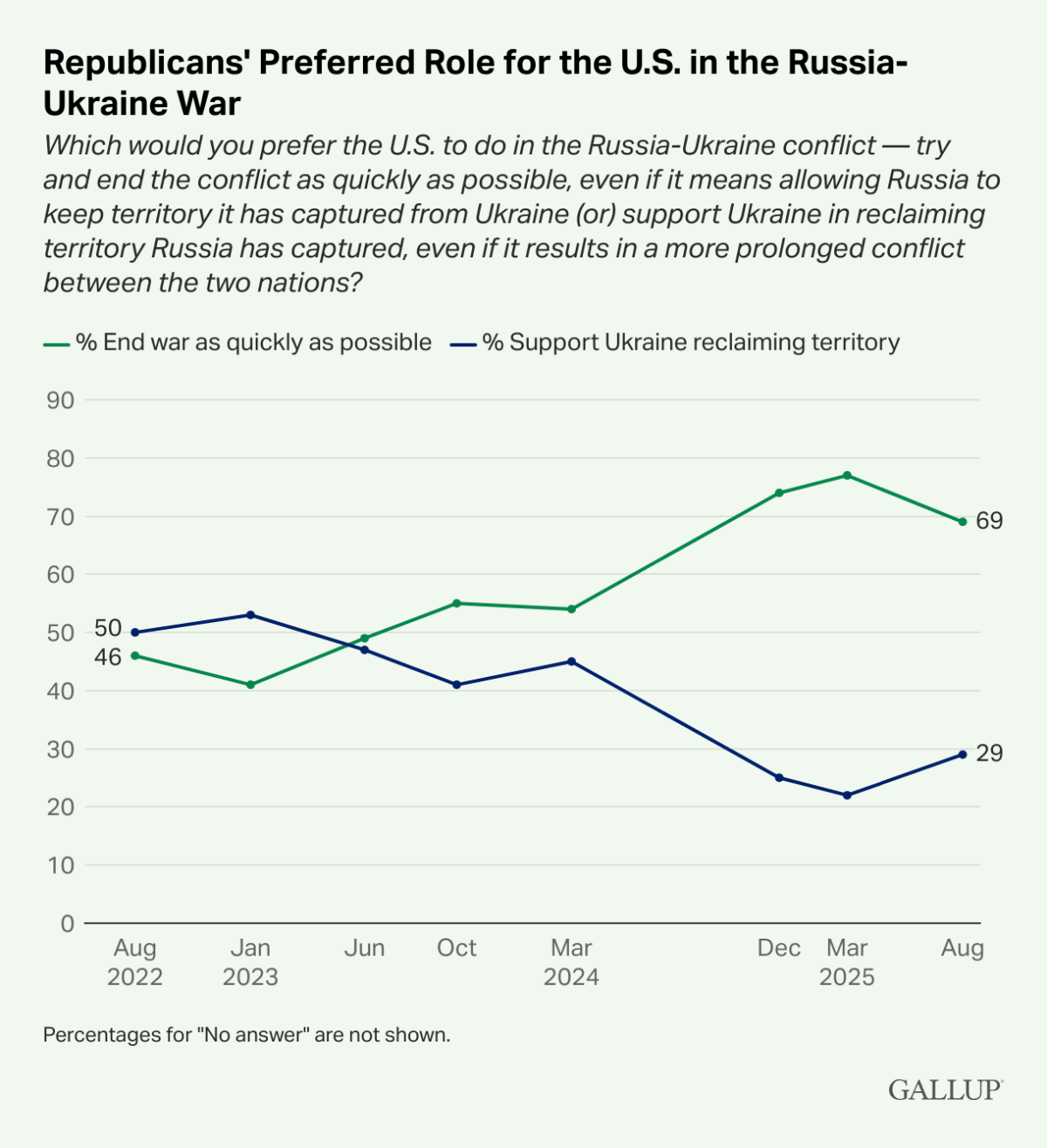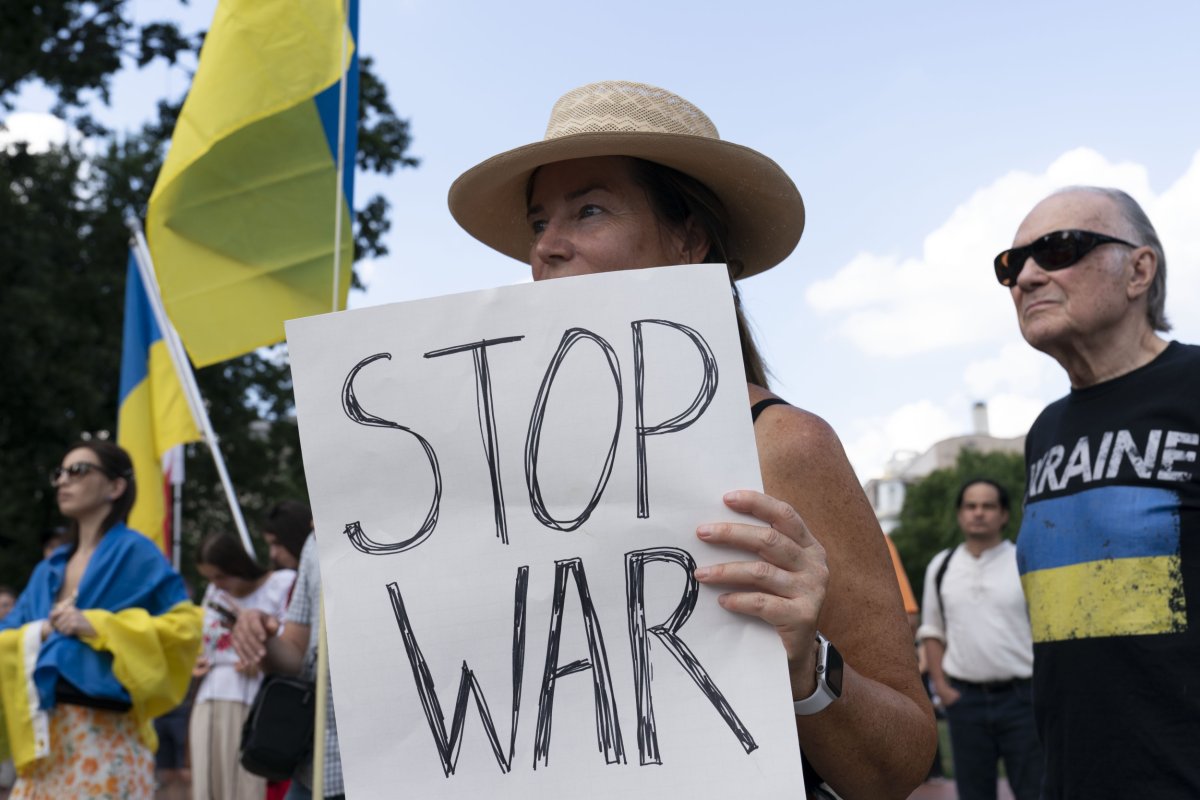Americans have changed their opinion on the war in Ukraine and how to end it since the conflict began in 2022, new polling shows.
Some 52 percent of Americans want the U.S. to support Ukraine in reclaiming lost territory, even if that means a prolonged war, while 45 percent want Washington to end the conflict quickly, even if that means Ukraine has to give up part of its former territory.
The 52 percent support is a drop from the two-thirds of Americans who favored the U.S. helping Ukraine reclaim its territory for as long as it takes when the war began, according to Gallup’s most recent poll carried out from August 1-15.
Why It Matters
The war’s trajectory—and Washington’s role in it—has emerged as a defining issue as the U.S. recalibrates its foreign policy under President Donald Trump‘s administration. The shift in public sentiment could influence whether further U.S. aid is forthcoming, how aggressively Washington pressures Kyiv to compromise, and whether Trump’s overtures to Moscow find traction at home.
What To Know
Within the results showing Americans’ new tilt toward wanting the war to end quickly whether Ukraine reclaims lost territory or not, there is a divide along party lines.
Democrats’ views have changed “very little since the war began,” pollsters said, with 80 percent favoring helping Ukraine reclaim its territory.

Gallup
This has stayed consistent throughout Gallup’s polls on the topic, with the lowest the figure dropped was 69 percent in the December 2024 survey.
Meanwhile, Republicans have shown a clear drop in support for Ukraine reclaiming lost territory, dipping from 53 percent at its highest point (January 2023) to 29 percent in the most recent survey.

Gallop
In this Gallup poll, for which 2,132 adults were questioned, took place before Trump met with Russian President Vladimir Putin in Alaska on August 15 and then Ukrainian President Volodymyr Zelensky and European leaders three days later.
Trump has said he intends to set up a meeting between Putin and Zelensky.
The poll disclaims a margin of error of plus or minus 3 percentage points.
What People Are Saying
President Donald Trump previously said on Truth Social about the coverage of his meeting with Putin: “Very unfair media is at work on my meeting with Putin. Constantly quoting fired losers and really dumb people like John Bolton, who just said that, even though the meeting is on American soil, ‘Putin has already won.’ What’s that all about? We are winning on EVERYTHING. The Fake News is working overtime (No tax on overtime!).
“If I got Moscow and Leningrad free, as part of the deal with Russia, the Fake News would say that I made a bad deal! But now they’ve been caught. Look at all of the real news that’s coming out about their CORRUPTION. They are sick and dishonest people, who probably hate our Country. But it doesn’t matter because we are winning on everything!!! MAGA.”
White House Deputy Press Secretary Anna Kelly previously told Newsweek: “President Trump was overwhelmingly elected by a majority of Americans to restore peace through strength. Unlike Joe Biden, who started this brutal war with his incompetence, this President has the courage to look anyone in the eye to deliver peace—which he has already done six times to end conflicts between Armenia and Azerbaijan, the Democratic Republic of the Congo and Rwanda, and many more.”
What Happens Next
While Trump’s diplomatic moves have not yielded public breakthroughs, the growing divide in American opinion may influence future strategy. Congress will face new pressure this fall to decide on pending military aid packages, while foreign leaders await signals about whether the U.S. is recalibrating toward diplomacy or deeper military commitment.
With no ceasefire in sight, the political cost of prolonging the war—and the perception of a stalemate—could increasingly shape not just U.S. foreign policy but the 2026 midterm elections.

AP